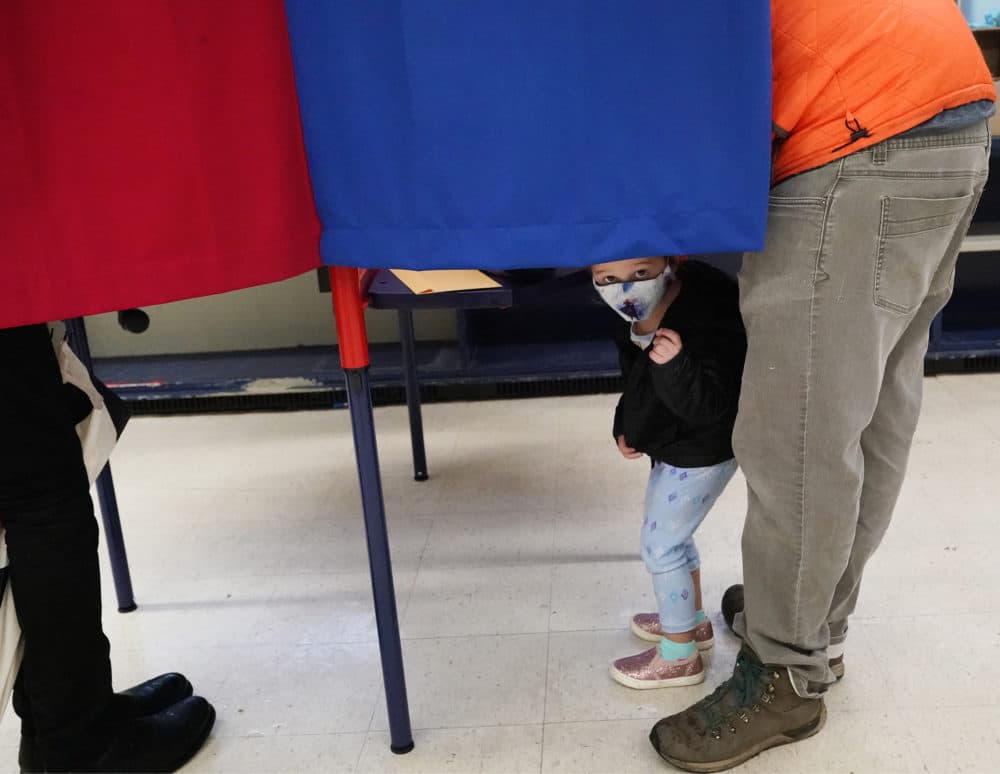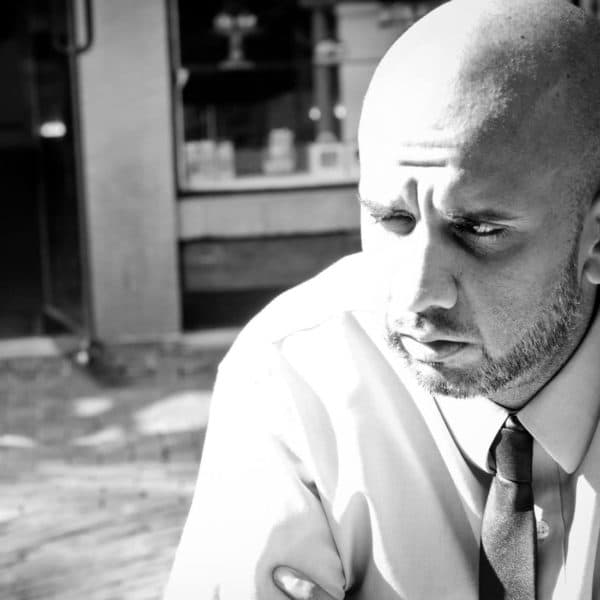Advertisement
Commentary
100,000 Bostonians won't be able to vote in the mayoral election. I'm one of them

Seven years ago, my wife got a job in Boston. After our wedding, we packed everything up and started our life here as newlyweds. Two kids, a Trump administration and a global pandemic later, Boston is still our home. America has made some less than desirable choices but we love it here. We feel like we are Bostonians ... almost.
Boston has so much to offer. We frequent the craft breweries and restaurants popping up between the Seaport District and Jamaica Plain. We take walks in the Common and watch the swans and ducks float around the pond in the summer. Our kids also love it here. Before the pandemic, my eldest daughter and I spent countless hours at the Roxbury YMCA perfecting her belly flop. Now, she is a proud kindergarten student in the Boston public schools.
My family has a symbiotic relationship with Boston. My wife and I are diligent about paying our taxes but we also give back in other ways. We volunteer, beside our neighbors, to clean up the trash in our local parks and we tend the vegetable plots at one of the local community gardens. We also donate to local charities such as the Massachusetts Bail Fund and Rosie’s Place.
Still, when it comes to voting, the relationship we have with the city of Boston is nonexistent. Since we are not citizens, we cannot vote in Boston elections.
[W]hen it comes to voting, the relationship we have with the city of Boston is nonexistent.
My wife and I are in our seventh year of navigating the labyrinth that is the American immigration system. Our green cards are at the end of the maze. Even once we have those, we are still benched until we become citizens. If we got our green cards tomorrow (dubious at best), we'd have to wait another five years to be eligible for citizenship. In sum, it would have taken 12 years to obtain the right to vote.
Voting would give my wife and me voices in how the entities we depend on are run. For example, we have stopped calling the Boston Police to report break-ins to our home. The BPD’s response has ranged from indifferent to blaming us for living in Roxbury. Voting is an opportunity for us to hold the BPD accountable by choosing a mayor who guarantees police accountability.
Voting also would give us a say in how Boston interacts with our children. We would use our votes to push for a city that ensures there are quality childcare options and afterschool programs offered to all of its residents, no matter what zip code they live in.
However, for immigrants, voting is fundamentally an issue of security. The last federal administration showed how tenuous life as an immigrant can be in America. First, the "Muslim ban" was passed. With a snap of a finger, families were targeted and divided. The result was chaos at Logan International Airport. People crowded the arrival gates pleading with airport officials and customs agents to be reunited with their siblings, parents and children.
Without the right to vote, we live at the whims of people who are, to put it bluntly, more welcome than we are.
Next, the family separation policy at the southern border permitted the U.S. government to separate children from their parents as a deterrent to those attempting to cross the border. Many of these children were lost in the bureaucracy and are now permanently separated from their families. Boston’s response to these policies sets the tone for how immigrants in Boston relate to this city.
My wife and I believed that Boston was a sanctuary city when former Mayor Marty Walsh spoke on the steps of Trinity Church in Copley Square. He declared that he would hide immigrants in city hall if he had to. His words gave us hope. When we heard him speak, we took comfort in being in Boston and pride in living in this city. However shortly after, we realized that Boston was and is still not as pro-immigrant as we wanted to believe.
The Walsh administration did not stop ICE agents from scooping up immigrants in courthouses, schools and places of worship. I saw them with my own eyes roaming the courthouses. They were easily identifiable: refrigerator-sized men with cell phones holstered in their belts roaming the halls wearing running shoes, jeans and windbreakers. Neither the courts, the police or Boston’s educators keep immigrants safe.
Advertisement
Voting gives us an opportunity to speak on our own behalf. Without the right to vote, we live at the whims of people who are, to put it bluntly, more welcome than we are.
Boston is known as the birthplace of American democracy. However, in the midst of another election, my spouse and I and just under 100,000 other Boston residents (approximately 13.5% of Boston residents are not citizens) are not permitted to cast a ballot. This does not have to be the case.
In 1996, Congress made noncitizen voting in federal elections a criminal and deportable offense. This law permitted the states to determine who had voting rights in state and municipal elections. Fourteen states have no clear impediment to noncitizen voting. In Maryland, one of the 14 states, 10 municipalities permit noncitizen residents to vote in local elections. This year in Vermont, Montpelier and Winooski passed a bill allowing all residents, regardless of citizenship, to vote.
Other cities are fighting for similar ordinances. In 2020, Illinois Sen. Celina Villanueva proposed legislation that would permit noncitizen residents to vote in school board elections. She argued that noncitizens are suffering taxation without representation. The bill has not yet passed.
In contrast, Boston has two candidates who don't seem to have given very much thought to giving immigrant residents voting rights. When asked, Annissa Essaibi George fell back on the tired trope that voting is a privilege reserved for citizens. (She should note that voting is a right.) Alleging that noncitizens have not earned the “privilege” of voting ignores each and every single contribution noncitizen residents have made to this world-class city. To date, Michelle Wu has not responded to my emailed inquiry. In public, Wu has been noticeably silent on the issue.
There is nothing stopping Boston from permitting all of its residents from voting. This begs two questions. Is Boston, the self-proclaimed birthplace of American democracy, a true democracy? And can immigrants really become true Bostonians?
